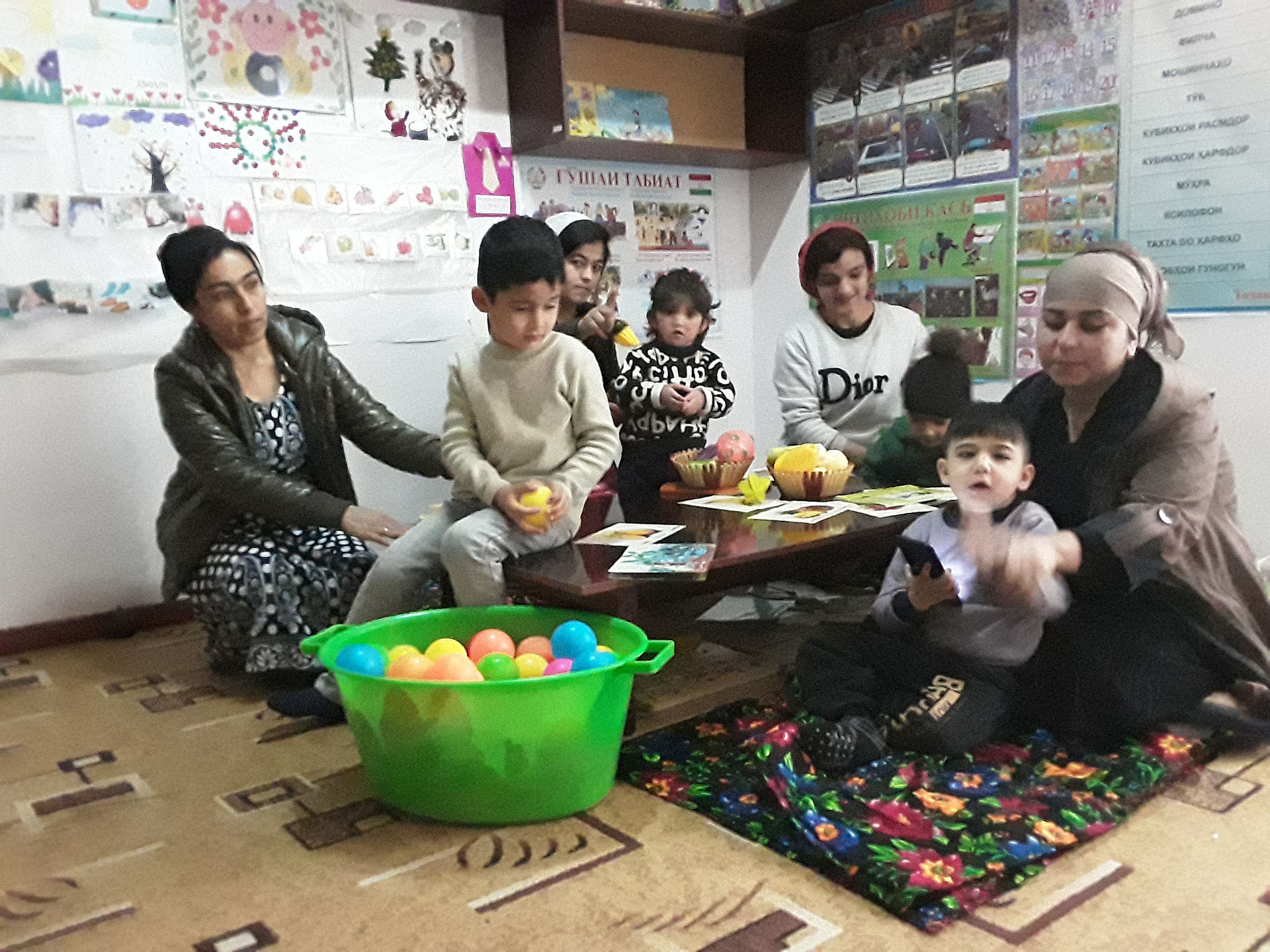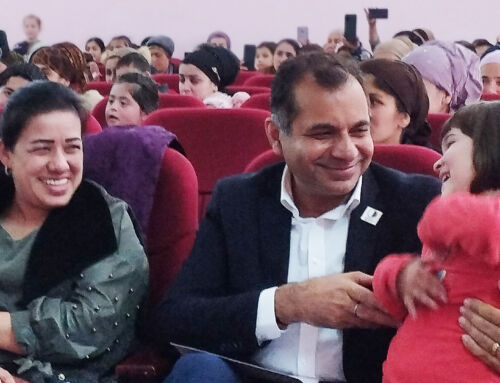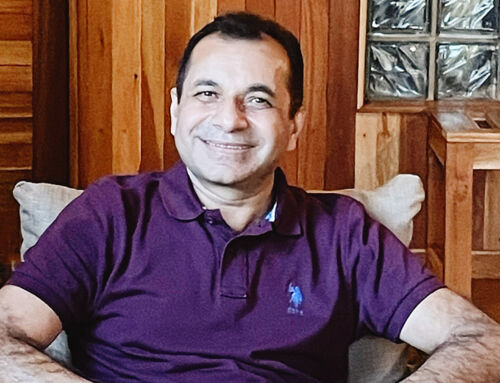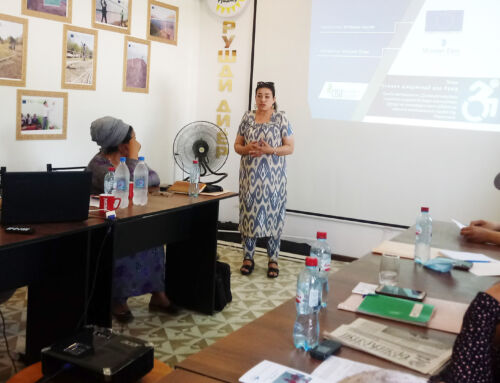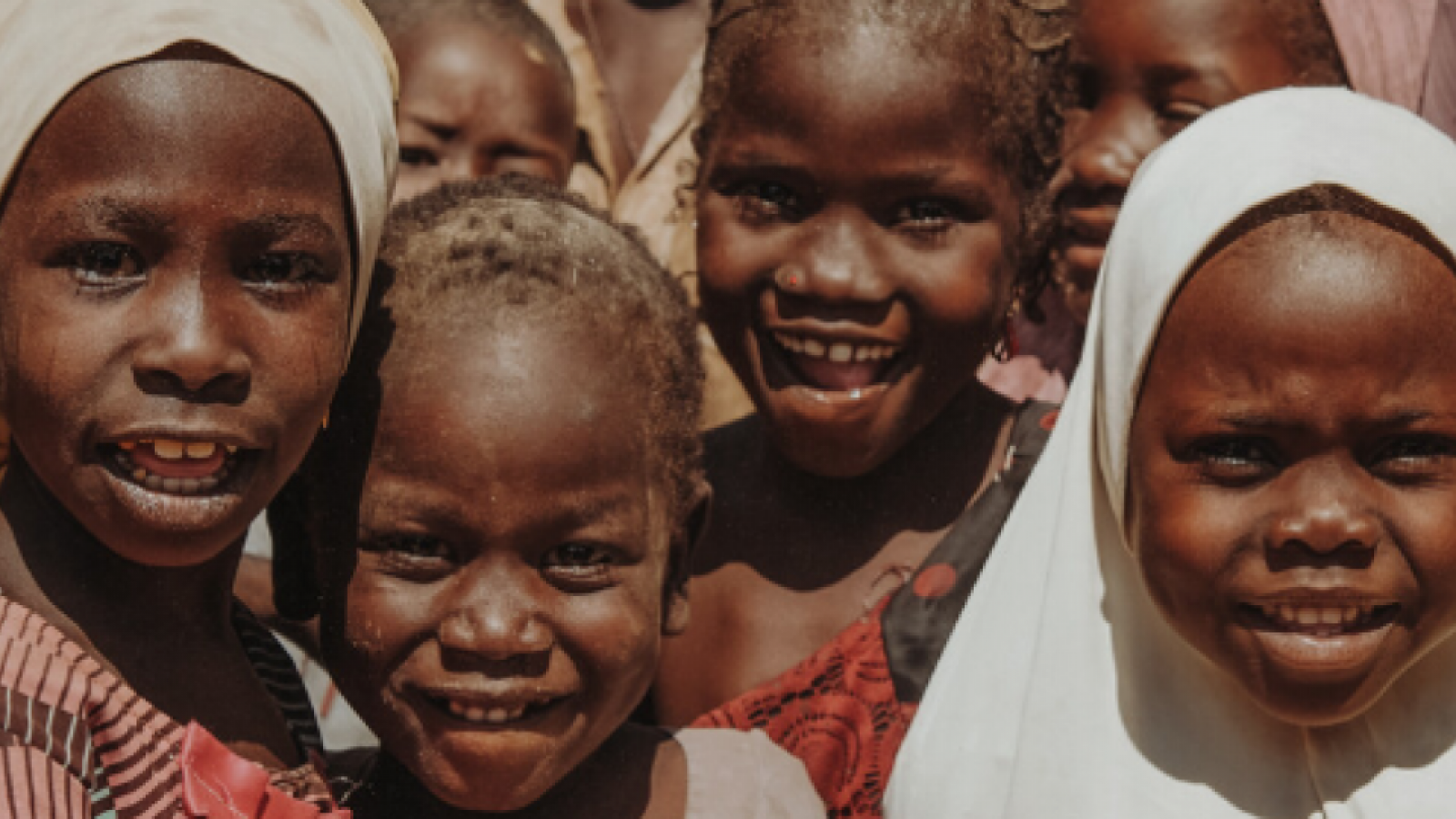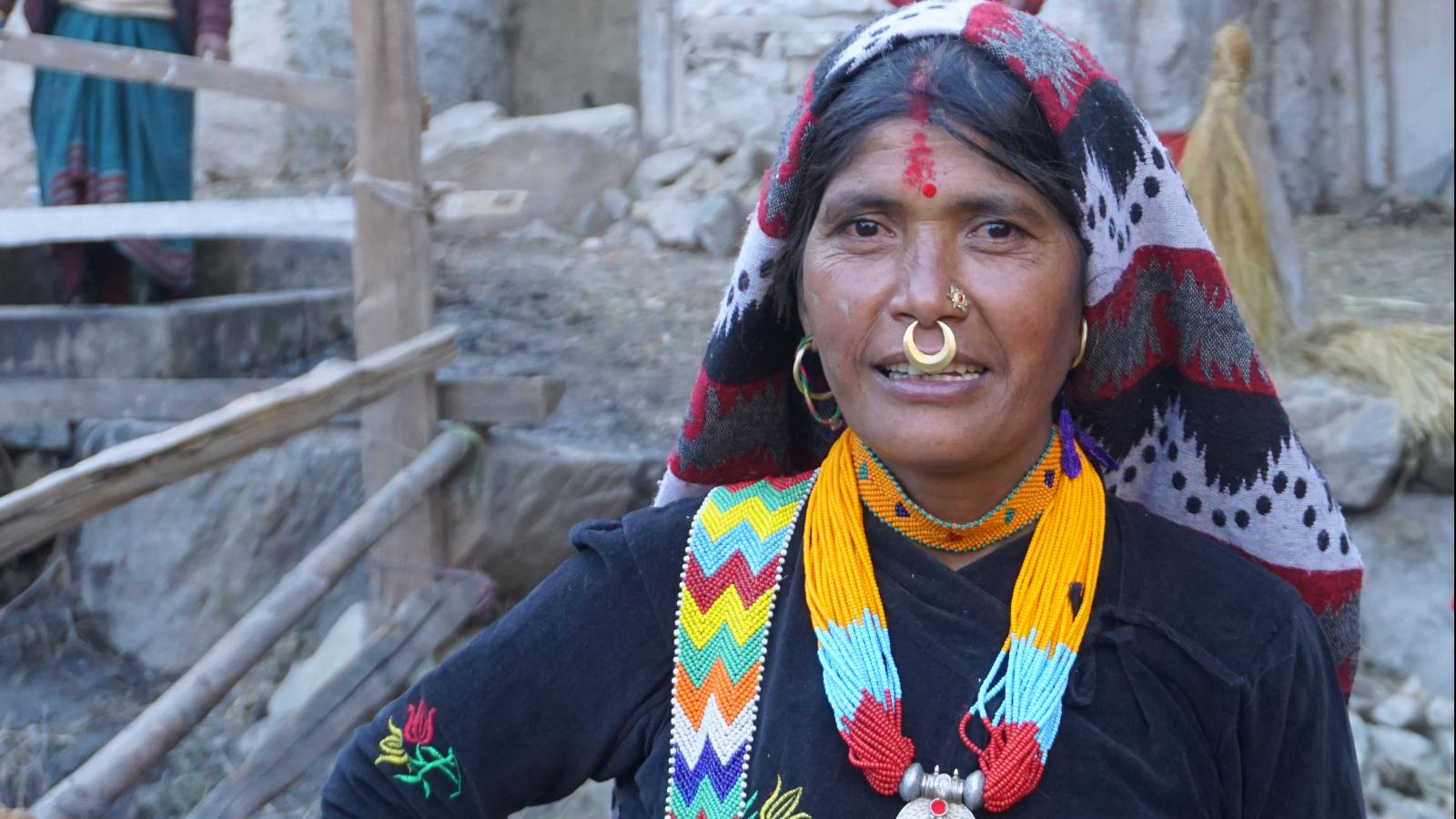Mission East challenges prejudices and the taboo surrounding disability in Tajikistan. At the same time, children with disabilities and their families receive information about their right to public benefits. The children receive rehabilitation services at home and at the rehabilitation centres established by the programme, while the parents not only learn about good hygiene and nutrition for their children but are also taught how to provide rehabilitation exercises for them at home.
Blog by Joohi Haleem, programme manager at Mission East
I have just returned home after a trip to Tajikistan, where Mission East has worked for 25 years. First with emergency aid after the collapse of the Soviet Union, then with water supply on the border with Afghanistan and the inclusion of children with disabilities in four areas of the country.
Disability is quite widespread in Tajikistan – especially among children. There is a lot of poverty – especially in rural areas. The proportion of children with disabilities is high, and it is taboo. People would rather not talk about it. Parents will sometimes not even register their children with the authorities if they have a disability. People with disabilities are marginalized and excluded from daily life in society.
We challenge the taboo
Mission East tries to challenge these prejudices and the taboo around disability by shining a light on people’s rights and access to the public services that are available in the poor country. What often happens to children with disabilities is that they may not be registered in the state system. Or that the parents have no idea what help they are entitled to.
There is a lack of information and limited access to information. So we try to make those connections, raise awareness about disability and make people understand what rights the children and families have.
The widow’s case was heard
For example, I met a widow with four children. Three of the children suffer from a disability. They were very poor and had no income. Her case became known nationally via social media. People crowdfunded and raised money for the little family.
It is a success story that shows how important it is for poor families who have children with disabilities to be acknowledged. This increases awareness and makes the general public aware of the problem.
Through local partners, we reach out into the local communities, find the families who hide their children away in shame, and encourage them by telling them about their rights and entitlements.
Offers rehabilitation in homes
These teams come from the four rehabilitation centers we support and are trained to understand the problems. They offer physical rehabilitation at people’s homes. They also manage the information campaigns and create awareness at the local level.
Mission East is well-known throughout the country and the sector for its so-called Community Based Rehabilitation (CBR) approach. The concept is to take the rehabilitation all the way to the families locally. We seek out the people who fall outside the systems and who therefore do not get access to support and help from the authorities. Because the authorities also offer help and services for children with disabilities – albeit very limited due to lack of resources.
Those we are assisting have not yet received those benefits or are not even aware of the existence of such services. Some cannot afford the transport to the rehabilitation services in district or to national facilities. Or in some cases, both parents are out at work and don’t have the time or the resources to help their children with disability. So the CBR approach is helping to fill that gap.
Provides information on good hygiene and nutrition
When our teams go out to the families, they also inform them about good hygiene and nutrition: How can you improve the child’s diet? How can you improve the health of the whole family? Most of the teams consist of women, so they have easier access to speak with the children’s mothers.
Now, it is not easy for poor families to go out and buy nutritious food, which is usually also expensive. That is why we have started to show parents how they can increase the family’s income. Maybe start a small business. Join savings and loan groups where they can invest and borrow as needed.
We have similar projects in Afghanistan. Here we teach women to save, borrow and invest in a business. Later, we will also train them in sales and marketing. But first it is about increasing people’s skills, informing them about their rights and securing better access to their finances and banking systems.
Light at the end of the tunnel
We also set up parent groups and parent associations. It gives the families a platform where they can meet, talk about their problems and work together to improve the conditions of their children.
It’s a long, tough haul. I readily admit that. But there is light at the end of the tunnel. The families become aware of their rights and can go to the municipality and receive health services. And they can bring their children to one of the four centers set up by Mission East and its partners in Tajikistan, so that they are stimulated and retrained to their full potential and better equipped to participate in mainstream society.
Mission East and its partners help to fill a crucial gap. We do not want to take over the state’s role, but in the next several years we will play an important role in creating a strong connection between the state, its most vulnerable citizens and local civil society actors, empowering each one in turn
Joohi Haleem is HQ Programme Manager at Mission East, responsible for the organization’s projects in Lebanon, Syria and Tajikistan. Mission Øst is an international aid organization founded in Denmark. The organization helps vulnerable people and local communities in Afghanistan, Armenia, Iraq, Lebanon, Myanmar, Nepal, Nigeria, North Korea, Syria, Tajikistan and Ukraine.

